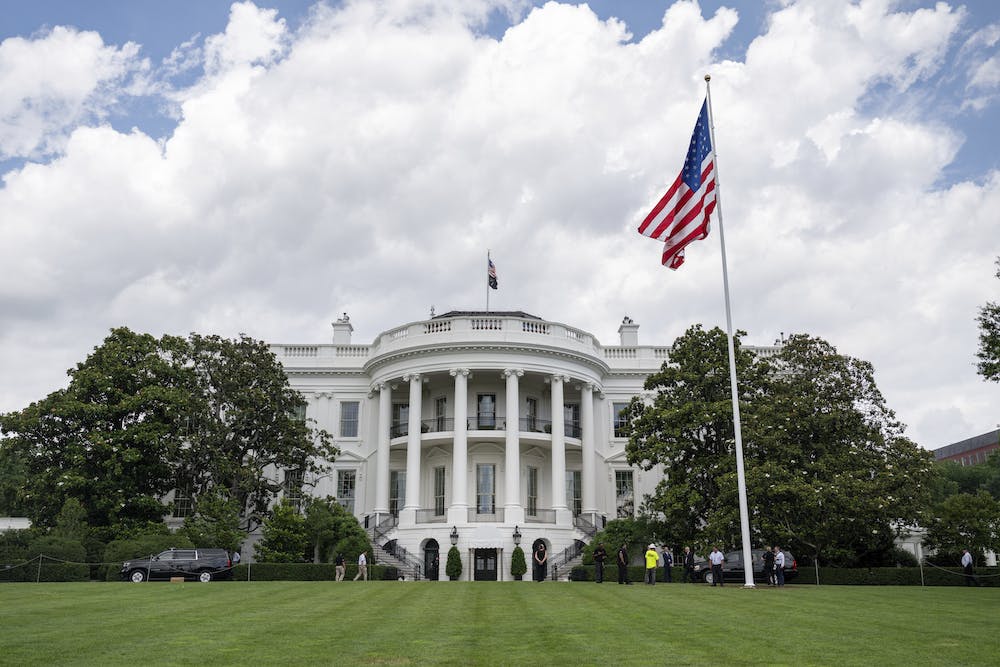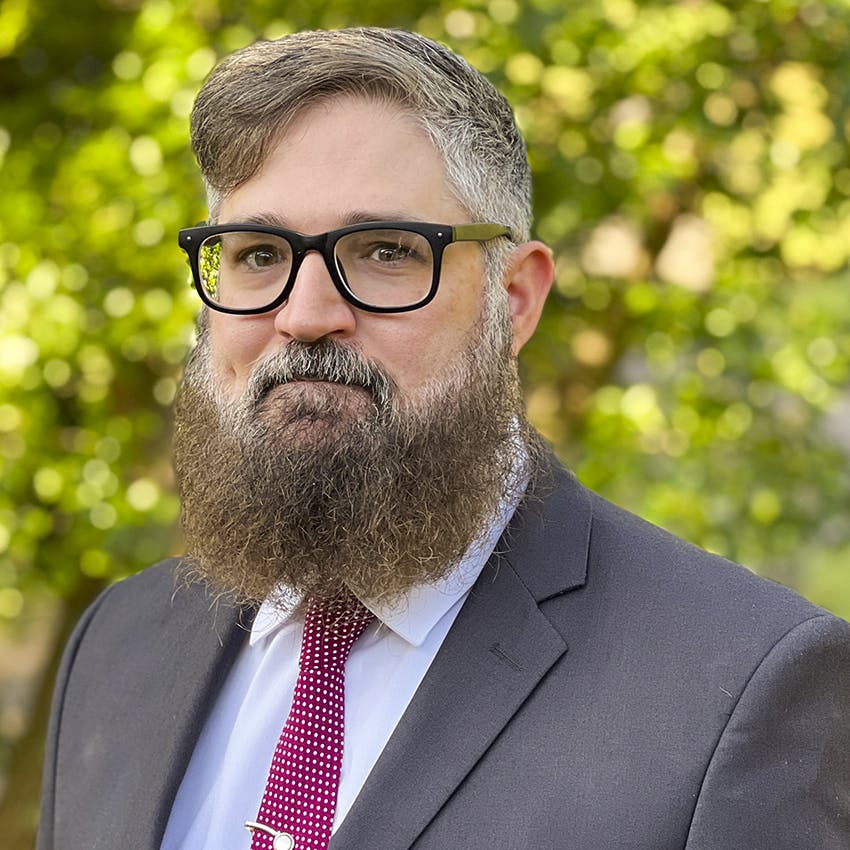Who’s in Charge of AI at Every Federal Agency
New AI memos from the Trump administration prompt federal agencies to establish chief AI officers and OMB to launch a new CAIO AI Council.

Federal agencies are appointing chief artificial intelligence officers as part of the collective movement to meet directives established in former President Joe Biden’s 2023 AI executive order and solidified by an AI memo from the Trump administration.
The 2023 executive order tasked agencies with a series of responsibilities connected to the technology. It marked the first time federal agencies were mandated to appoint a designated CAIO, whose responsibilities include“coordinating their agency’s use of AI, promoting AI innovation, [and] managing risks from the use of AI,” according to the Office of Management and Budget’s guidance.
President Donald Trump’s April 2025 memo on accelerating AI innovation continued efforts to establish chief AI officers and tasked the OMB director with creating a CAIO AI Council within 90 days of the memo’s release. The council will coordinate AI development and use across agencies, ensure compliance with relevant policies, promote shared tools and best practices and will automatically sunset five years after its creation unless extended by the OMB director.
Here are some of the most prominent leaders at the agency level in charge of AI:
White House: David Sacks
Before returning to the White House, Trump indicated he would make David Sacks his “White House AI and crypto czar.” Sacks, officially the special advisor for AI and crypto, has been influential in the White House’s AI policy initiatives including America’s AI Action Plan. Since Sacks did not step down from his role at Craft Ventures, the venture capital firm he co-founded, he is considered a “special government employee,” which limits him to serving in his federal capacity for only 130 days each year.
Agriculture Department: Christopher Alvares
Christopher Alvares was selected as the Department of Agriculture’s CAIO in 2023. Alvares also serves as the department’s chief data officer. He helped develop the USDA’s inaugural AI strategy for FY 2025-26.
“Our progress in advanced analytics and data informed decision-making over the past decade demonstrates the importance of this inaugural AI Strategy, which will establish the technological and cultural infrastructure to responsibly use AI, increase employee satisfaction, and expand the impact of our mission delivery,” said Alvares in the strategy’s introduction.
As CDO and CAIO, Alvares is responsible for developing strategies that enable USDA to fully leverage its data as a strategic asset, improving organizational decision-making and outcomes for citizens. Alvares began his career working for private sector biotech companies, before becoming director of a data analytics team that provided genomic analytics services to other biotechnology and pharmaceutical clients.
Commerce Department: Brian Epley
Brian Epley is the current CAIO and CIO at the Department of Commerce, according to the department’s AI compliance plan released September 2025.
Epley was previously at the Department of Energy, where he served as the principal deputy CIO. He assisted the CIO in the formation of the office’s strategic direction for the protection and modernization of IT, cybersecurity, data usage and digitization.
Cybersecurity and Infrastructure Security Agency: Unknown
Lisa Einstein, who was named CISA’s first CAIO in August 2024, had been leading AI efforts since 2023 as the agency’s senior advisor for AI as well as the executive director of the Cybersecurity Advisory Committee. While at CISA, Einstein worked to help prioritize security in developing and deploying AI tools.
Einstein resigned as CAIO in February 2025.
War Department: Cameron Stanley
Cameron Stanley is the chief digital and artificial intelligence officer (CDAO) for the Department of War. Previously, Stanley served as national security transformation lead for Amazon Web Services and was the chief data officerfor the undersecretary of defense for intelligence and security from 2022-2024. Prior to that, he was chief of the Algorithmic Warfare Cross Functional Team, also known as Project Maven.
Education Department: Unknown
Energy Department: Helena Fu
Helena Fu, director of the Office of Critical and Emerging Technologies at the Department of Energy , serves as the agency’s acting CAIO, an agency spokesperson told GovCIO Media & Research.
Since December 2023, Fu has been responsible for coordinating the DOE’s uses of AI, managing the risks and promoting innovation. She is also exploring how the agency will apply AI applications and change its capabilities.
Fu previously served as director for Technology and National Security at the White House National Security Council and as director of International Science and Technology Cooperation and Trusted Research for the Office of Science at DOE.
Equal Employment Opportunity Commission: Unknown
Department of Health and Human Services: Clark Minor
Clark Minor is the acting chief artificial intelligence officer for the Department of Health and Human Services, according to the department’s AI strategy released in December. Prior to HHS, Minor worked at Palantir Technologies for nearly 13 years, according to his LinkedIn profile.
“AI is a tool to catalyze progress,” Minor said in December and added that the department plans to “harnessing AI to empower our workforce and drive innovation across the Department.”
Food and Drug Administration: Jeremy Walsh
Jeremy Walsh became the first-ever CAIO for the Food and Drug Administration in early 2025. Shortly after, the FDA launched Elsa, a generative AI tool to help employee efficiency. Prior to the FDA, Walsh worked for 14 years as the chief technologist at Booz Allen Hamilton, according to his LinkedIn profile.
Department of Homeland Security: Antoine McCord
Antoine McCord serves as the Department of Homeland Security’s chief AI officer and CIO. McCord, who was appointed as CAIO in March, is responsible for promoting AI innovation and responsible use within DHS. He also advises the secretary and department leadership on AI strategy and risks as well as leads the DHS AI Council.
As CIO, McCord oversees the agency’s enterprise-wide IT strategy, cybersecurity operations and digital modernization efforts. Prior to DHS, he specialized in cyber and intelligence operations while serving in the U.S. Marine Corps.
Department of Housing and Urban Development: Eric Sidle
Eric Sidle serves as the CIO and CAIO for the Department of Housing and Urban Development, according to the agency’s leadership page.
He said he was “excited to advance the systems and processes that empower the American Dream of homeownership for millions of families” on social media. Prior to joining HUD, Sidle worked at the technology consulting firmFabrum Advisors for the past two years.
Justice Department: Unknown
Jonathan Mayer served as the Justice Department’s first chief science and technology advisor and CAIO from February 2024 until early 2025. At DOJ, the CAIO role includes advising DOJ leadership on issues like cybersecurity, AIand other emerging technologies.
Labor Department: Mangala Kuppa
Mangala Kuppa stepped into the role of CAIO for the Department of Labor in June 2025, taking over from Louis Charlier. Kuppa previously served as the agency’s deputy CAIO prior to moving into the lead role.
Kuppa first came to the agency in 2020 after spending more than a decade at the Bureau of Labor Statistics. Within the labor department, she has served as the director of case management and director of business application services.
National Aeronautics and Space Administration: Kevin Murphy
Kevin Murphy is the acting CAIO at NASA, succeeding David Salvagnini. Murphy holds the dual role of CAIO and CDO, according to the NASA website. Murphy came to NASA’s Office of the Chief Information Officer in 2021 after working as a program executive for the Earth Science Data System (ESDS) program, according to his LinkedIn profile. As the CAIO, Murphy will focus on advancing NASA’s AI strategy and growing the agency’s AI use case inventory.
National Science Foundation: Social Security Administration: Brian Peltier
Brian Peltier is Social Security Administration’s CAIO. Peltier also serves as SSA’s deputy CIO and has been at the agency for more than 20 years.
In the administration’s AI strategy document, Peltier said both SSA employees and customers can benefit was advancing AI.
“We recognize AI as a valuable tool that supports our workforce by helping SSA employees serve the public more efficiently, while also enabling customers to interact with us more effectively. Our approach is to amplify the potential of AI while protecting sensitive data and mitigating the associated risks and limitations,” he wrote.
State Department: Amy Ritualo
Amy Ritualo serves as the Department of State’s acting CAIO and CDO. She stepped into the roles in Jan. 2025, after Matthew Graviss left the agency.
Ritualo has been with State since 2022 and held the deputy CDO role since 2024. Before State, she worked at United States Citizenship and Immigration Services, USDA and Labor. The CAIO position, according to an archived State Department description, is “responsible for making data accessible, interoperable and actionable across the Department of State.”
Treasury Department: Paras Malik
Paras Malik serves as the Department of the Treasury’s CAIO. Previously she worked at the Boston Consulting Group, Morgan Stanley and the Federal Reserve Bank of New York. As CAIO, Malik will lead the department’s “strategic use of artificial intelligence to enhance mission delivery and strengthen the resilience of the U.S. financial system,” according to a Treasury announcement.
General Services Administration: Zach Whitman
Zach Whitman, who joined the General Services Administration in July 2023 as the agency’s chief data scientist, assumed the CAIO role in November 2023. Whitman was previously CDO at the Census Bureau for seven years and worked in the private sector before his time at Census.
Under Whitman, the administration is implementing a three-tiered approach to AI implementation, according to its AI strategy plan.
“GSA ensures that AI adoption progresses responsibly and strategically—starting with low-risk, high-value enterprise services that enable broader enterprise adoption and workforce upskilling (Tier 1), advancing to program-specific integrations that leverage a service-based architecture while maintaining all requisite system and data controls (Tier 2), and finally embedding AI directly into mission systems and high-impact applications to increase the direct value and service delivery of those systems (Tier 3).”
Department of Veterans Affairs: Charles Worthington
Charles Worthington serves a dual hat role as CAIO and CTO at the Department of Veterans Affairs. Worthington was first reported as the CAIO in February 2024 and has been CTO since joining the agency in 2017. He briefed the House of Representatives on the department’s plans to integrate AI into its operations in early 2024.
Additionally, Gil Alterovitz serves as CAIO of the Veterans Health Administration and the inaugural director of the National Artificial Intelligence Institute (NAII). He was one of the major players behind the White House’s Blueprint for an AI Bill of Rights that preceded the AI executive order.
Alterovitz has been at the agency for nearly five years. In that time, he has worked with more than 20 VA offices to create the agency’s first AI strategy.
His work with NAII centers around building AI research and development to improve veteran care and services. Alterovitz was also one of the key authors of the White House Office of Science Technology and Policy’s National AI R&D Strategic Plan in 2019.
Federal Trade Commission: Mark Gray
Mark Gray serves as the Federal Trade Commission’s CAIO and CIO. Gray has held the CAIO position since 2023 and was previously the agency’s deputy CIO for more than three years. Before joining FTC, Gray served as the U.S. Army’s finance transformation and innovation director. He also held positions with the War Department as well as the Defense Health Agency.
Interior Department: Jay McMaster
Jay McMaster serves as the Department of the Interior’s CAIO, according to the agency’s AI compliance plan.
“AI will be integrated into Department operations to generate insights, automate business processes and operations, and improve decision-making. This will allow us to use our scientifc and cultural data more effectively,” according to the Interior’s AI strategy plan.
Transportation Department: Unknown
Environmental Protection Agency: Niki Maslin
Niki Maslin serves as the Environmental Protection Agency’s CAIO, according to the agency’s website. Maslin also serves as EPA’s CTO and deputy director of Office of Digital Services and Technical Architecture. Maslin said on LinkedIn that she’s excited about new and innovative technologies and how best to develop and implement them. Before coming to EPA, Maslin served in various roles at FEMA and the U.S. Navy.
National Archives and Records Administration: Gulam Shakir
Gulam Shakir is the acting CIO and CAIO, according to the National Archives and Records Administration website. Shakir has led NARA’s AI pilots to improve customer experience efforts through enhanced search capabilities, strengthening security efforts of employee data, and used AI to draft a metadata description for the agency’s data.
As the CAIO and CIO, Shakir has led the digital transformation efforts to migrate to the cloud and modernize other legacy applications. Shakir previously served as NARA’s CTO.
Office of Personnel Management: Perryn Ashmore
Perryn Ashmore is the acting CAIO for the Office of Personnel Management, according to the organization’s AI compliance plan.
Feb. 6, 2026 — This article has been updated since initial publication to reflect the latest leadership appointments.
This is a carousel with manually rotating slides. Use Next and Previous buttons to navigate or jump to a slide with the slide dots
-

Pentagon Leaders Must Give ‘Top Cover’ for Risk-Taking, DOW Official Says
Bonnie Evangelista says acquisition reform will fail without leadership support that allows for experimentation without penalty.
3m read -

Digital GI Bill Automation Speeds VA Benefits Delivery
VA officials said Digital GI Bill upgrades have improved claims speed, enabling the department to process benefits with fewer staff.
3m read -

Federal CIO: ‘The Shackles are Off’ for AI Innovation in Government
Federal CIO Gregory Barbaccia said the PMA encourages faster tech adoption, AI experimentation and simpler digital services for citizens.
3m read -

Tracking CIOs in Trump's Second Term
Stay informed on the latest shifts in federal technology leadership as new CIOs are appointed and President Trump's second term takes shape.
6m read









